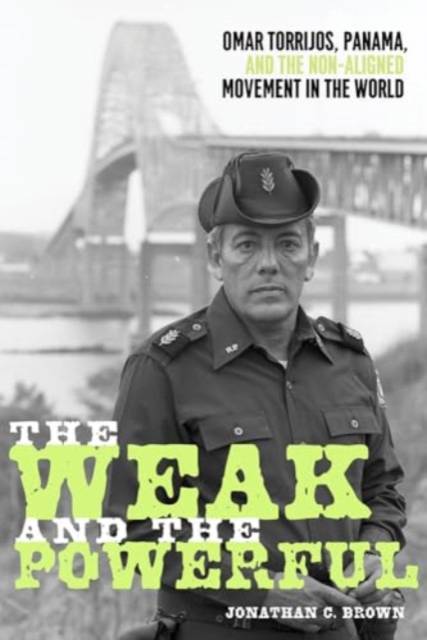
Je cadeautjes zeker op tijd in huis hebben voor de feestdagen? Kom langs in onze winkels en vind het perfecte geschenk!
- Afhalen na 1 uur in een winkel met voorraad
- Gratis thuislevering in België vanaf € 30
- Ruim aanbod met 7 miljoen producten
Je cadeautjes zeker op tijd in huis hebben voor de feestdagen? Kom langs in onze winkels en vind het perfecte geschenk!
- Afhalen na 1 uur in een winkel met voorraad
- Gratis thuislevering in België vanaf € 30
- Ruim aanbod met 7 miljoen producten
Zoeken
The Weak and the Powerful
Omar Torrijos, Panama, and the Non-Aligned Movement in the World
Jonathan C Brown
€ 91,95
+ 183 punten
Omschrijving
Panama is a country whose geopolitical importance outweighs its size because of the volume of trade that passes the Central American isthmus through the canal. For nearly a century, the United States occupied and controlled the Panama Canal Zone and its shipping operations. In 1999, control was passed to Panama's Canal Authority. This peaceful transfer was a result of the 1977 Torrijos-Carter Treaties. The Weak and the Powerful studies how a weak country negotiated the Cold War and how a strongman navigated between competing power blocs. Omar Torrijos took power in Panama through a 1968 coup d'état and ruled that country until his death in 1981. He committed his country to the Non-Aligned Movement (NAM), which purported to stand for noninterference and against imperialism. Jonathan C. Brown looks at how Torrijos and the NAM were able to mobilize world opinion of the weak against the powerful to pressure the United States to live up to its democratic and international ideals regarding sovereignty of the canal. The author also demonstrates how world opinion was unable to address the problems of ideologically motivated warfare in neighboring Central American states.
Specificaties
Betrokkenen
- Auteur(s):
- Uitgeverij:
Inhoud
- Aantal bladzijden:
- 320
- Taal:
- Engels
- Reeks:
Eigenschappen
- Productcode (EAN):
- 9780822948070
- Verschijningsdatum:
- 19/03/2024
- Uitvoering:
- Hardcover
- Formaat:
- Genaaid
- Afmetingen:
- 155 mm x 231 mm
- Gewicht:
- 657 g

Alleen bij Standaard Boekhandel
+ 183 punten op je klantenkaart van Standaard Boekhandel
Beoordelingen
We publiceren alleen reviews die voldoen aan de voorwaarden voor reviews. Bekijk onze voorwaarden voor reviews.









